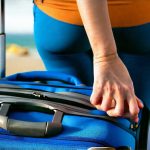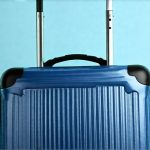Traveling is often touted as broadening the mind and creating lasting memories, yet for women managing bladder issues – whether due to conditions like overactive bladder (OAB), interstitial cystitis (IC), stress incontinence, or post-surgical complications – it can be a source of significant anxiety and logistical challenges. The fear of accidents, limited access to appropriate facilities, and the constant need to plan around bathroom breaks can overshadow the joy of exploration. This isn’t about restricting travel; it’s about empowering women with knowledge and strategies to navigate these concerns confidently and enjoy their journeys to the fullest. Many resources exist for general travel safety, but specifically addressing the needs of those with bladder sensitivities requires a focused approach that acknowledges the unique challenges involved.
This article aims to provide practical advice and helpful tips for women who want to travel without letting bladder issues dictate their experiences. It’s about proactive preparation, understanding your body’s signals, and building confidence in managing potential situations while on the go. We will cover pre-trip planning, strategies for during travel (airports, road trips, public transportation), and essential packing considerations. The goal isn’t to eliminate concerns entirely, but to minimize stress and maximize enjoyment, allowing you to embrace the freedom and adventure that travel offers. It is crucial to remember this information is not a substitute for professional medical guidance; always consult your healthcare provider for personalized advice related to your specific condition.
Pre-Trip Planning & Preparation
Thorough planning is arguably the most important step in ensuring a smooth and stress-free trip when you’re managing bladder issues. It’s about anticipating potential challenges and proactively addressing them before you even leave home. This includes not just logistical arrangements but also understanding your body’s patterns and limitations, and communicating these to travel companions if comfortable. Preparation reduces anxiety and gives you a sense of control.
The first step is to schedule a check-up with your doctor or pelvic floor therapist before your trip. Discuss your travel plans and any concerns you have. They can offer tailored advice based on your specific condition, potentially adjust medication schedules (if applicable), and provide reassurance. It’s also wise to obtain copies of relevant medical records, particularly if traveling internationally, in case of emergency. Consider creating a brief summary of your condition and medications to carry with you – this is especially useful if you don’t speak the local language.
Beyond medical preparation, research your destination thoroughly. Look for information about restroom availability along your planned routes and at points of interest. Websites and apps dedicated to locating restrooms (like Flush or SitOrSquat) can be invaluable resources. If you’re planning activities like hiking or long tours, investigate bathroom facilities beforehand. Knowing where potential relief is available can significantly reduce anxiety. Finally, mentally prepare for the possibility of unexpected situations – having a plan B can make all the difference when things don’t go as expected. You might also want to explore best daily habits to incorporate into your routine before you leave.
During Travel: Strategies & Considerations
Once you’re on your journey, maintaining awareness and employing practical strategies becomes key to managing bladder issues effectively. Whether traveling by air, road, or public transport, there are specific considerations for each mode of transportation. Staying hydrated is important, but timing fluid intake is crucial. Avoid excessive caffeine and alcohol consumption as these can exacerbate bladder symptoms.
Air travel often presents unique challenges due to limited restroom access and the pressurized cabin environment. Request an aisle seat when booking your flight – this allows for quicker bathroom trips without disturbing other passengers. Drink a moderate amount of water during the flight, avoiding large volumes immediately before landing. Utilize the restrooms at the gate before boarding and upon arrival. If you’re concerned about long delays or turbulence, discreetly inform a flight attendant about your condition; they may be able to offer assistance or provide information about restroom availability.
Road trips require careful planning of rest stops. Map out potential bathroom breaks along your route and factor them into your travel time. Don’t hesitate to pull over if you feel the urge to go, even if it means slightly delaying your arrival. Public transportation can also be challenging, particularly in unfamiliar cities. Research restroom locations at train stations or bus terminals beforehand. Be mindful of long journeys without readily available facilities and plan accordingly. If you are planning on more active travel, consider reviewing tips for hiking safely to prepare.
Essential Packing List for Bladder Health
Packing strategically is essential for managing bladder issues while traveling. It’s not just about bringing medication; it’s about anticipating potential accidents and having the necessary supplies to address them discreetly and confidently. A well-prepared travel kit can provide peace of mind and prevent embarrassing situations.
- Absorbent pads or underwear: Even if you typically have good bladder control, packing these provides a safety net in case of unexpected leaks. Choose products designed for incontinence that are comfortable and discreet.
- Wet wipes or flushable wipes: These are useful for cleaning up any accidents and maintaining hygiene.
- Change of underwear and pants: Accidents happen, so having a spare set of clothes can prevent embarrassment and discomfort. Pack in a waterproof bag to keep them clean and dry.
- Plastic bags: For disposing of used pads or underwear discreetly.
- Hand sanitizer: Maintaining good hygiene is particularly important when using public restrooms.
- Medication (if applicable): Ensure you have an adequate supply of any prescribed medications, plus a little extra in case of delays. Keep it in your carry-on bag.
Consider including travel-sized versions of personal care items to minimize weight and space. Pack everything in a dedicated waterproof pouch or bag for easy access and organization. Don’t underestimate the power of being prepared. This isn’t about expecting the worst, but about having a plan B that allows you to manage unexpected situations with confidence. It is also important to practice safe hygiene habits while traveling.
Navigating Restroom Challenges
Finding clean and accessible restrooms can be a significant source of stress for women with bladder issues while traveling. Public restrooms often vary greatly in quality and availability. Developing strategies for navigating these challenges is crucial for maintaining comfort and dignity.
- Be proactive: Don’t wait until you absolutely have to go before searching for a restroom. Start looking as soon as you feel the first urge.
- Ask for help: Don’t hesitate to ask staff at hotels, restaurants, or shops if they can direct you to a clean and accessible restroom. Many establishments are happy to assist.
- Carry a travel bottle of disinfectant wipes: Using these before sitting on a public toilet seat can provide extra peace of mind.
- Consider using a portable bidet: These small devices attach to water bottles and offer a hygienic way to cleanse after using the restroom, especially when facilities are limited.
If you encounter a dirty or inaccessible restroom, don’t feel obligated to use it. Continue searching for a better option. Remember that your comfort and hygiene are paramount. Advocating for your needs is essential. Don’t be afraid to speak up if you require assistance or have concerns about restroom facilities.
Managing Anxiety & Building Confidence
Anxiety surrounding bladder issues can often exacerbate symptoms and limit travel opportunities. Learning to manage anxiety and build confidence is crucial for enjoying your journeys without constant worry. Techniques like mindfulness, deep breathing exercises, and positive self-talk can be incredibly helpful.
- Focus on what you can control: You can’t eliminate the possibility of accidents entirely, but you can control your preparation, planning, and responses to challenging situations.
- Challenge negative thoughts: Replace anxious thoughts with more realistic and empowering ones. Instead of thinking “What if I have an accident?”, try “I am prepared for this trip, and I can handle whatever comes my way.”
- Practice self-compassion: Be kind to yourself and remember that everyone experiences challenges. Acknowledge your feelings without judgment.
If anxiety is significantly impacting your ability to travel, consider seeking support from a therapist or counselor. They can provide coping strategies and help you develop a more positive mindset. Remember that your worth isn’t defined by your bladder issues. You deserve to enjoy the freedom and adventure of travel, regardless of your condition.





















